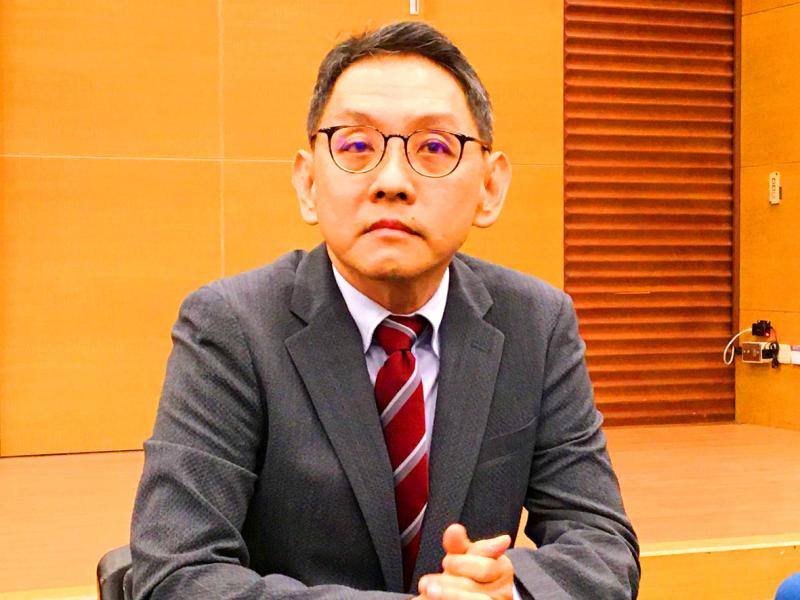Shares of passive components supplier Walsin Technology Corp (華新科技) moved sharply higher yesterday after its announcement the previous day of plans to acquire a stake in Japan-based Soshin Electric Co.
The demand for its shares was sparked by expectations that Walsin, a supplier of multi-layer ceramic capacitors, chip resistors and other passive components, is to expand its production with the stake in the Japanese company.
Its shares rose 3.86 percent to close at NT$202 on the Taiwan Stock Exchange, outperforming the TAIEX, which closed up 1.19 percent at 13,885.67.

Photo: CNA
On Monday, Walsin Technology said it aims to buy a 35.64-to-50.1 percent stake in Soshin through a tender offer that started yesterday and runs through Jan. 4.
Through its subsidiary, Japan-based Kamaya Electric Co, Walsin Technology would pay ¥460 per share for the Soshin stake during that period, it said.
It would start with 5.56 million shares, or a 35.64 percent stake, and the maximum would be 7.82 million shares, or 50.1 percent, according to the deal.
The estimated cost of the acquisition is ¥2.56 billion to ¥3.6 billion (US$24.55 million to US$34.52 million), which would make Walsin Technology the Japanese firm’s largest stakeholder when the deal is completed on Jan. 12, it said.
The Soshin board at a meeting on Monday expressed support for the deal.
In addition, Soshin’s parent company and largest shareholder, NGK Insulators Ltd, has agreed to the sale of 35.64 percent of its subsidiary to Walsin Technology, but would retain a 5.04 percent stake.
Soshin, which was set up in 1938, has a paid-in capital of ¥3.806 billion and its shares are traded on the First Section of the Tokyo Stock Exchange, according to Walsin Technology.
Soshin produces a wide range of products, such as capacitors, multilayered dielectric filters and low-temperature cofired ceramics, which are used in communications devices, automotive electronics, medical equipment, communications base stations, railways and satellites, Walsin Technology said.

South Korea’s equity benchmark yesterday crossed a new milestone just a month after surpassing the once-unthinkable 5,000 mark as surging global memory demand powers the country’s biggest chipmakers. The KOSPI advanced as much as 2.6 percent to a record 6,123, with Samsung Electronics Co and SK Hynix Inc each gaining more than 2 percent. With the benchmark now up 45 percent this year, South Korea’s stock market capitalization has also moved past France’s, following last month’s overtaking of Germany’s. Long overlooked by foreign funds, despite being undervalued, South Korean stocks have now emerged as clear winners in the global market. The so-called “artificial intelligence

NEW IDENTITY: Known for its software, India has expanded into hardware, with its semiconductor industry growing from US$38bn in 2023 to US$45bn to US$50bn India on Saturday inaugurated its first semiconductor assembly and test facility, a milestone in the government’s push to reduce dependence on foreign chipmakers and stake a claim in a sector dominated by China. Indian Prime Minister Narendra Modi opened US firm Micron Technology Inc’s semiconductor assembly, test and packaging unit in his home state of Gujarat, hailing the “dawn of a new era” for India’s technology ambitions. “When young Indians look back in the future, they will see this decade as the turning point in our tech future,” Modi told the event, which was broadcast on his YouTube channel. The plant would convert

‘SEISMIC SHIFT’: The researcher forecast there would be about 1.1 billion mobile shipments this year, down from 1.26 billion the prior year and erasing years of gains The global smartphone market is expected to contract 12.9 percent this year due to the unprecedented memorychip shortage, marking “a crisis like no other,” researcher International Data Corp (IDC) said. The new forecast, a dramatic revision down from earlier estimates, gives the latest accounting of the ongoing memory crunch that is affecting every corner of the electronics industry. The demand for advanced memory to power artificial intelligence (AI) tasks has drained global supply until well into next year and jeopardizes the business model of many smartphone makers. IDC forecast about 1.1 billion mobile shipments this year, down from 1.26 billion the prior

People stand in a Pokemon store in Tokyo on Thursday. One of the world highest-grossing franchises is celebrated its 30th anniversary yesterday.